A small group of Assamese living in the eastern suburb is ensuring that their customs and traditions are alive here, as we found out from last weekend’s celebrations of Bihu
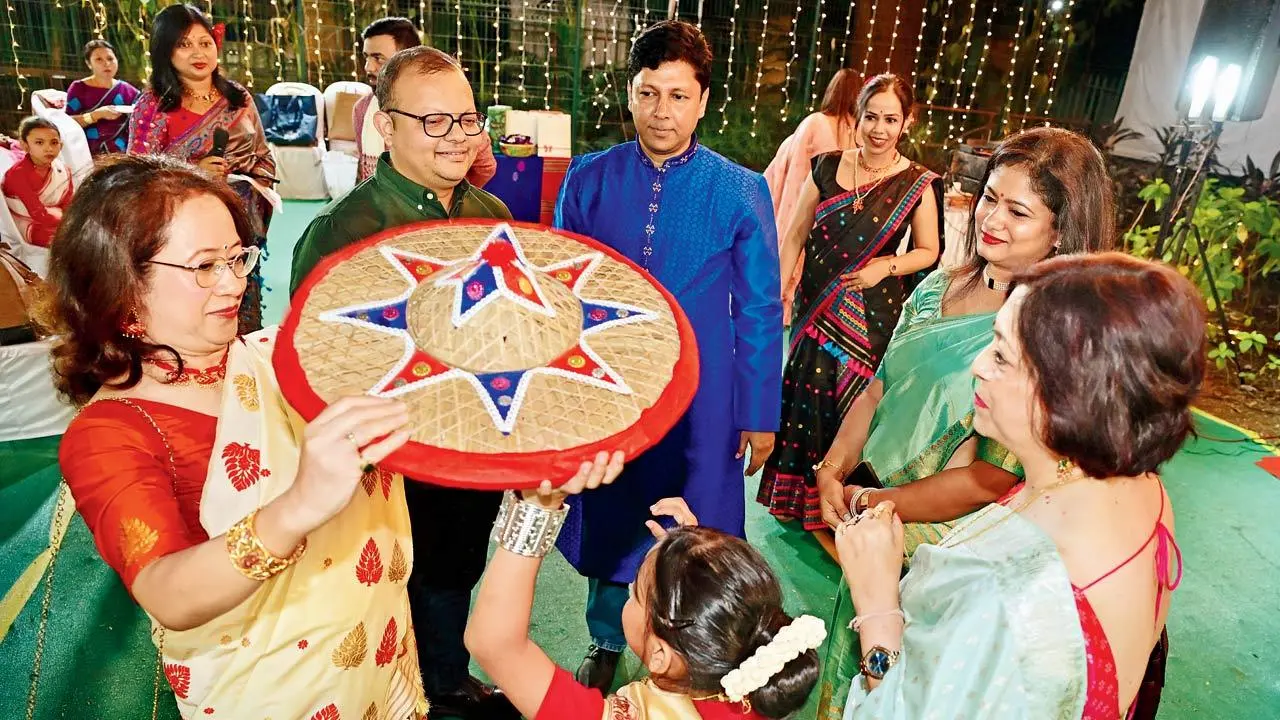
People pass around the traditional hat, Jaapi during a game. Pics/Shadab Khan
For those of us staying away from our homes, festivals are the times where homesickness hits the most. With the cool winds of January bringing the harvest season to its fruition, the month saw people celebrating the arrival of fresh stock from farms with much cheer and joy. While Mumbai indulged in jaggery-laden sweets and crunchy snacks to celebrate Makar Sankranti, members of the Assamese community in Thane soaked in the spirit of Bihu on January 18 with a celebration full of revelry, food and obviously, nostalgia.
ADVERTISEMENT
Most of them live in Thane, and have been coming here for nearly 13 years. Since then, these celebrations include Bihu potluck parties at home with food cooked by the women of the community, before groups were formed on social media in 2014. “When we started gathering at each other’s houses for Bihu, there were very few Assamese families. The community expanded over the years and there came a point where people couldn’t be accommodated in the homes; it’s when we decided to host the festival on a bigger scale and I formed a Facebook group along with a few other people to keep everyone connected,” Gautaam Borah, the organiser of the festival tells us.
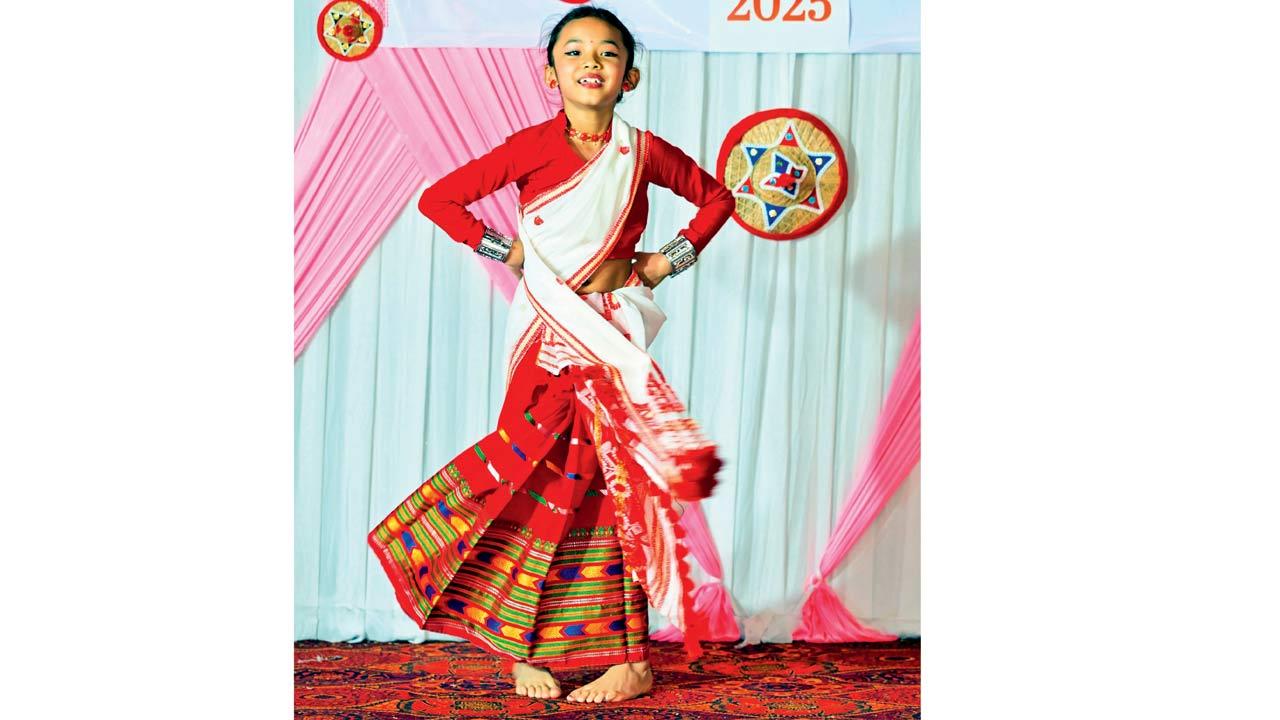 A girl performs Bihu dance on the stage during the event
A girl performs Bihu dance on the stage during the event
This year saw a gathering of 90 to 100 people from in and around Mumbai and Thane to celebrate the 12th year of the community’s annual Bihu celebration. “We celebrate the festival on a Saturday closest to the date of Bihu, and since we don’t have an association or organisation, all the work for the festival is divided and voluntarily taken by people. This is the perfect time for us to catch up with each other and enjoy the festival like we used to back home,” Borah shares.
In all the banter, a particular game catches our eye. “The Bihu lottery is a funny traditional game,” Manisha Mohan, a member of the community tells us. “We have food coupons with a number mentioned in it and a lottery is drawn. The lucky winner gets a bag of rice or a dozen eggs as the prize. It is quite a popular ritual back home,” she says. Since the gathering has new people joining the community every year, the other games carry fun twists to break the ice between members. While Jaapi, a brightly coloured traditional hat made from bamboo leaves is circulated in a game of passing the parcel, we also catch an amusing sight of couples struggling to balance on newspapers for a heady dance challenge at the event.
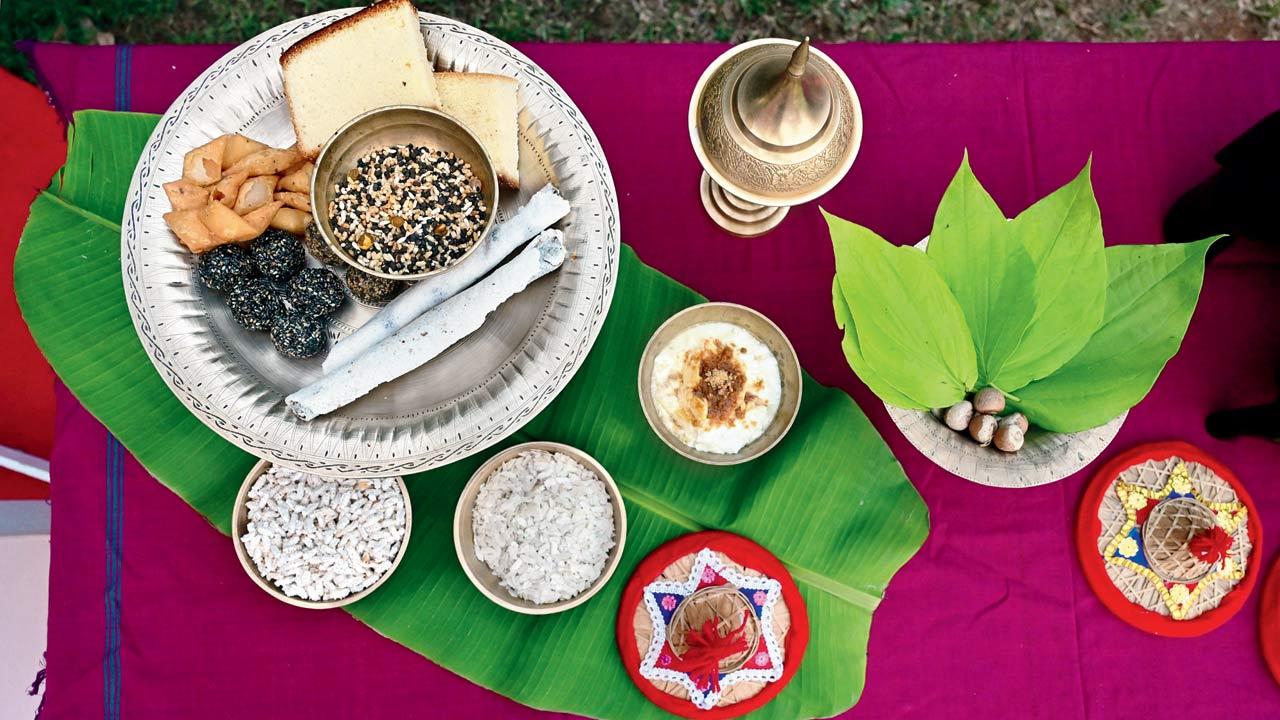 A traditional Bihu platter
A traditional Bihu platter
It is not long before the delicious aroma wafting from the kitchen calls for feasting time. With the festive spread consisting of rice, dal, fish kalia and chicken kosha, the conversation inevitably turns to memories of traditional Assamese food. “There are practically no shops or stores where you can get authentic ingredients here. While some members source ingredients from Assam, we mostly manage with what is available in the city,” Aditi Kataki, another member explains. While the spread includes certain traditional dishes like narikol laru, nimki, til laru and kumol saul (semi-sticky rice soaked in water and eaten with jaggery and cream) prepared in small batches by the women of the community, the absence of a traditional food fair soon translates into a nostalgic yearning for home.
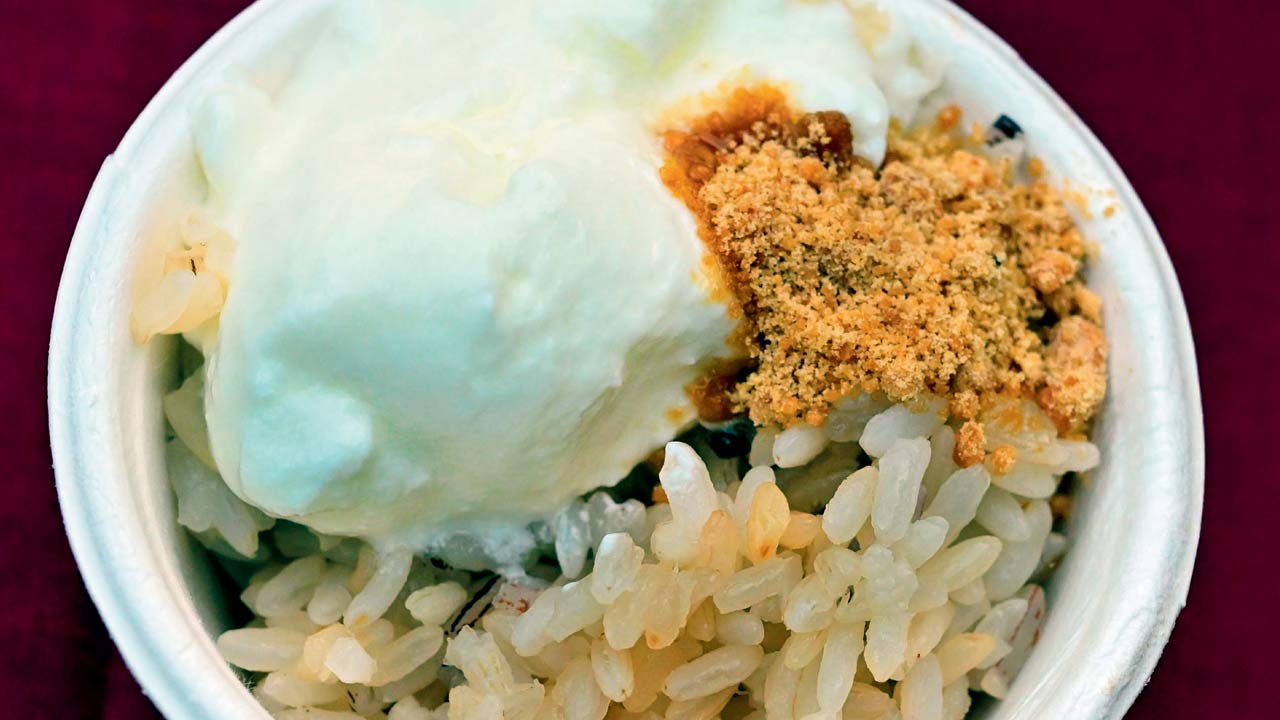 Kumol saul with cream and jaggery
Kumol saul with cream and jaggery
“Bihu is when the granaries are full with fresh produce from farms, so in villages you’ll see people spiritedly celebrating Mukoli Bihu in fields. Women are clad in Mekhela Sador with Kapou flowers in their hair and everyone feasts together. Haahor mangxo (a spicy duck curry made with ash gourd) is a popular delicacy. I remember this one time, Manisha flew in duck meat from Assam for the festival, and cooked it for all of us. While we relished the curry, this cannot be arranged every year,” Kataki shares amidst laughs.
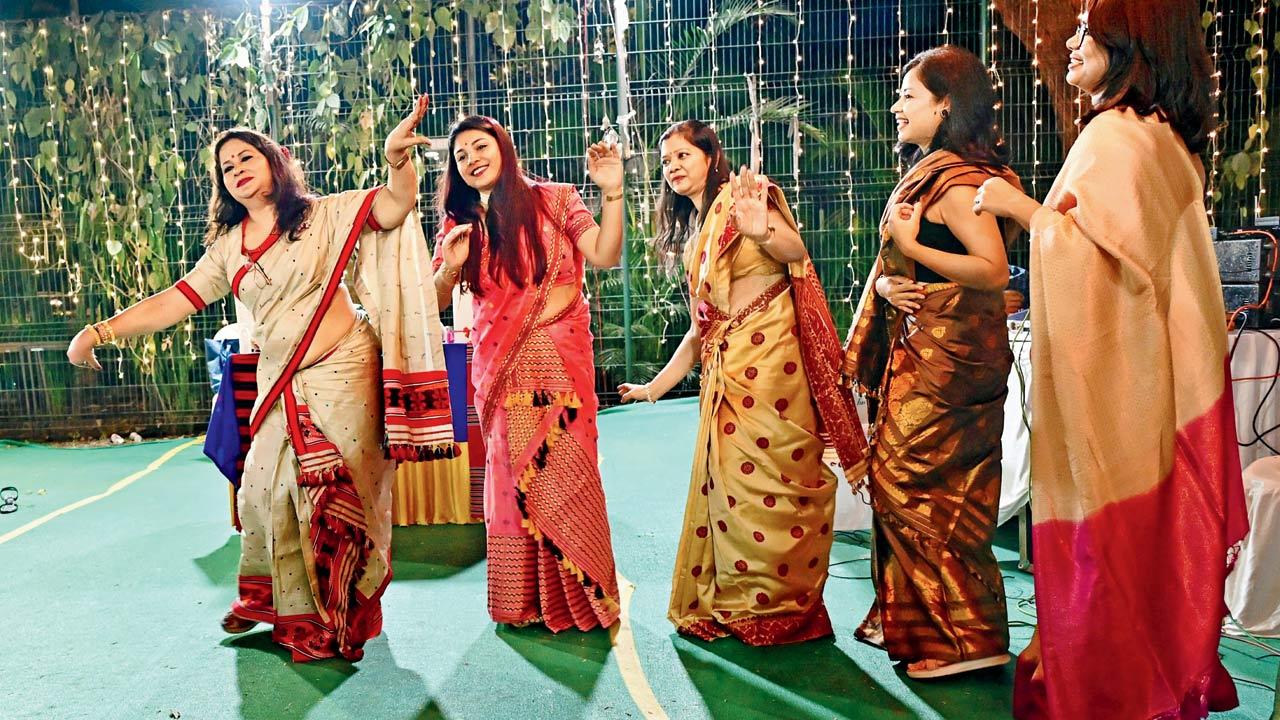 Women gather for a group dance at the celebration
Women gather for a group dance at the celebration
As the evening draws to a close, we see the ladies admiring each other’s radiant sarees, children doing their own little dances and the food polished off. With the festive fervour slowly snuffing out, Borah drops in a tidbit. “We also celebrate Bohag Bihu in April, which is observed to welcome spring. It is one of the most pleasant season back home. This Bihu will be in an indoor venue because of the scorching heat here.
Hopefully, with all these festive celebrations we’ll be able to instill our traditions in the younger generation and carry forward our culture,” he concludes.
E-mail [email protected] (for details)
 Subscribe today by clicking the link and stay updated with the latest news!" Click here!
Subscribe today by clicking the link and stay updated with the latest news!" Click here!







